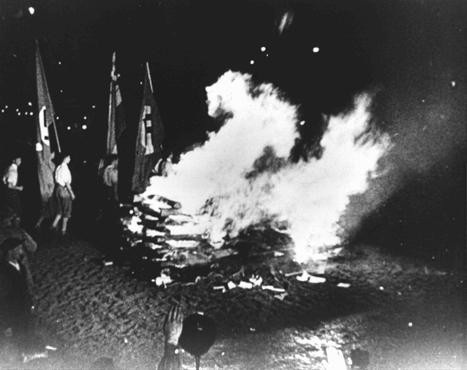
Alfred Kerr
In 1933, Nazi students at more than 30 German universities pillaged libraries in search of books they considered to be "un-German." Among the literary and political writings they threw into the flames were the works of Alfred Kerr.
Excerpt
Whoever lets terror rule the street
lets heads roll richly at your feet,
who spews out rage at every lot
"Spill blood and let the Jews all rot!"
He's deemed here—no, I kid you not—
a law-abiding patriot.
—Orakel (Oracle), Alfred Kerr, ca. 1930 (translated by Guy Stern)
Which of Alfred Kerr's Works were Burned?
All works published before May 1933
Who was Alfred Kerr?
With his unsparing wit, gift for satire, and accurate, learned descriptions, German Jew Alfred (Kempner) Kerr (1867–1948) was one of the most widely read theater critics of the Weimar Republic—both admired and feared. His columns were carried in some of Germany's leading newspapers and were also anthologized in book form. In these and other journalistic writings Kerr used his talents to debunk the pretensions of Nazi ideology.
When the Nazis came to power, they indexed his books and burned them. In 1933 Kerr and his family fled Germany for London via Czechoslovakia, Switzerland, and France. These years of exile were described, from a child's perspective, by Kerr's daughter in her book When Hitler Stole Pink Rabbit.
Critical Thinking Questions
If Jews were the principal target during the Holocaust, why were works of art by non-Jewish authors burned?
How did the German public react? What was the reaction outside of Germany?
Why do oppressive regimes promote or support censorship and book burning? Why might this be a warning sign for mass atrocity?

